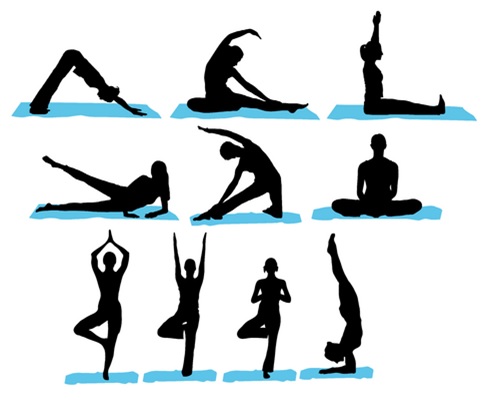
How to overcome the pain of Chronic Fatigue and Fibromyalgia?
Certain situations can bring on painful chronic fatigue symptoms, but you can take control over these causes of fatigue and manage your chronic tiredness. Chronic fatigue syndrome is a challenge to manage, but we can exercise to have some control over our chronic fatigue symptoms. Exercising that control will help in avoiding flares, or at least reduce their length and severity when they do occur. The word fibromyalgia comes from the Greek myos meaning “muscle”, Greek algos meaning “pain”, and New Latin fibro meaning “fibrous tissue”. Fibromyalgia patients have been shown to have lower levels of brain chemicals that inhibit pain signals, including serotonin and norepinephrine, as well as higher levels of brain chemicals that cause pain signals, including substance P and glutamate. Fibromyalgia is a common and chronic disorder. When a health illness or condition is chronic, it means it is long lasting. Here are few ways to avoid and overcome this long lasting pain of Fibromyalgia (See next slides)
Image courtesy: https://www.pinterest.com/rockobadger/healthy-living/ElgP4pOsJ8QOP7IfwK6ACllxukai
Reference: http://makinglifesweet.com/learning-to-live-with-fibromyalgia/
1. Vitamin D & Magnesium
Vitamin D and magnesium levels have been found to be low in people with fibromyalgia, but as of yet there is no evidence that taking vitamin supplements are an effective fibromyalgia treatment. Vitamin D, known as the sunshine vitamin, does have some effects on nerve and muscle function, and some studies have suggested that low levels of vitamin D may be associated with chronic pain of fibromyalgia. In a small clinical study published online in the January 2012 issue of Pain Medicine, fibromyalgia symptoms improved in 30 women after 8 weeks of vitamin D supplementation.
Image courtesy: http://health-zoom.worldwideshoppingmall.co.uk/ph-calcium-magnesium-and-vitamin-d.jpg
2. Stop standing for longtime
“Our work has shown that many people with chronic fatigue syndrome have problems standing still in line or standing in the same place when they’re cooking or washing dishes,” says Peter Rowe, MD, director of the Chronic Fatigue Clinic at Johns Hopkins Children’s Center in Baltimore. “When you’re standing still, the problem — one that seems to give people trouble — is that there seems to be too much pooling of blood in the limbs, in the legs primarily, and there isn’t enough blood getting up to the brain.” What happens in that situation is that people feel lightheaded and can get headaches, so avoiding still, upright postures makes sense. If you know that standing and not moving for a longtime take a break and ask for help.
Image courtesy: http://www.georgiaveincenter.com/wp-content/uploads/2010/12/leg-pain-standing-sitting.jpg
3. Avoid High Heat
Heat can exacerbate chronic fatigue symptoms in some patients. It can be exposing to Sun, high heat inside home, cooking for a long time in presence of heat, hot showers, sitting in sauna etc. Many CFS patients feel that they get dizzy and extremely tired in the shower and often need to lie down on the bed. Avoid such heated conditions by reducing your exposure to the source.
Image courtesy: http://www.mytravelo.com/blog/wp-content/uploads/2013/12/mandrem-beach-in-goa.jpg
4. Help From Acupuncture
Acupuncture is one of the oldest forms of treatment for chronic pain and is based on ancient Chinese medical practices. There have been several studies on the usefulness of acupuncture in fibromyalgia. But the effect of acupuncture may not lost long.
Image courtesy: realhealthmedical.com
5. Free from stress
In chronic fatigue syndrome, people seem to find it helps them to avoid other stressors in life. Finding ways to reduce stressors is important. Learn to enjoy by doing what you want to do. If someone’s discussion is stressing you out, tell that person. If watching news stresses you out, then choose what you want to watch and when you want to watch. Recognize your limits and lower your expectations so that you are not easily upset.
Image courtesy: http://blahtherapy.com/wp-content/uploads/2013/01/stress-free-zone.jpg
6. Forgo Certain Foods and Drinks
In general, people with chronic fatigue syndrome should eat healthy foods, eat smaller meals, and eat more frequently. Skipping meals can bring on chronic fatigue symptoms and drain your energy so be sure to eat on a regular schedule. Some patients with chronic fatigue syndrome find that stimulants such as caffeine can cause setbacks and zap their energy. For some people, caffeine is helpful because it helps with circulation of blood and it has a stimulant property. For others it can cause to lose too much urine. It has a diuretic property, so people have to be cautious. Evaluate whether caffeine affects you in a bad way, and if it does, try to avoid it.
Research shows that chronic fatigue syndrome is related to blood flow to the brain. It is better to avoid anything that will increase adrenaline hormone. Foods like sugar will increase blood sugar and comes down rapidly. Too much sugar can cause lighter headaches so get it back up into the normal range later, there is an adrenaline surge that can contribute to light headedness for people with CFS. Avoid eating too much sugar.
7. Massage Therapy
Massage therapy is more than relaxing me-time. Studies continue to prove the physical, and emotional benefits of even a single massage therapy session. All those symptoms associated with CFS like Chest pain, Fatigue, Headache, Muscle tension or pain. Sleep etc all these can be treated by massage therapy.
8. Aromatherapy
Applying fragrant herbs or oils to the skin or inhaling them can promote sleep, decrease muscle pain, improve circulation, and calm the mind. Aromatherapy is to relax body and mind. It may help fibromyalgia muscle pain and sleep problems.
9. Yoga
Yoga is an exercise and a stress reliever in one. Yoga moves involve stretching, and stretching can improve circulation and decrease inflammation. Fibromyalgia patients often will benefit from the meditative aspect of yoga as much as the physical. Yoga is a great antidote to stress, which can exacerbate fibromyalgia symptoms.
Image courtesy: https://beactivedecatur.files.wordpress.com/2012/01/poses1.jpg
10. Foods that help
Fruits and veggies are typically low in calories, high in fiber, and rich in antioxidants and phytochemicals. That’s good news for those who are, respectively, battling obesity, irritable bowel syndrome (IBS), or autoimmune disorders — all common among fibromyalgia patients. Plus, natural foods lack the additives that can aggravate symptoms. Eating more natural foods is very important for people suffering from this condition. Try omega -3S, lean protein and avoid foods containing artificial sweeteners and sugar.
Image courtesy: www.idealmd.com
Author: Sumana Rao | Posted on: September 9, 2015
































Write a comment